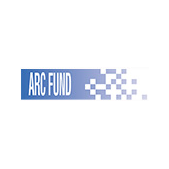It has often been said that recognising the social context of sustainable development is key to developing targeted policy action. Yet inputs to sustainability science have mainly come from conservation science, environmental science, climate science, and economics. At the heart of this approach lies the conviction that the path to sustainable innovation can be successfully paved by devising market-driven technological responses to some of the most enduring challenges people face on a day-to-day basis. As a result we have witnessed the nurturing of the right conditions for a broader technical change taking place on multiple fronts, with energy, transport and agriculture serving perhaps as the most telling examples.
The global transition toward the sustainable future, however, has neglected the goals and aspirations of societies who happen to be the ones shaping and enacting its principles in their daily lives. In light of people’s pressing and more immediate concerns, it becomes increasingly apparent that the major challenge of sustainability today resides not in the implementation of technologically-driven solutions clashing with popular sensibilities, but rather in the radical and systemic re-orientation of society and the economy, more widely. Effective models of sustainability innovation would therefore need to adapt to contextual and experiential approaches to visioning the future, which use long time frames and involve many different actors. A paradigm shift to wider public engagement methods and techniques could deliver a much better balance between ecological, economic and social aspects than the one that exists today.
Broadly speaking, what is missing from the current policymaking process are the nuanced perspectives of stakeholders and civic society at large, who tend to view sustainability in complex and multi-dimensional ways. Rather than imagining the future in plain terms, prioritising one issue over another, the citizens tend to stress the need for an overhaul of the broad socio-ecological regime, focused explicitly and squarely on the goal of sustainable living and improved quality of life. Inherent in their holistic views is the idea that ecosystems, the biosphere, and the socioeconomic systems are intrinsically related to one another, providing fertile ground for a collective rethinking on matters of sustainable development. As it were, some combinations of technological, cultural, organisational and institutional tranformations would need to take place within complex socio-technical systems, if sustainable innovation is to result in any real change.
Indeed, as people make multiple references to a number of socially and culturally relevant themes (such as building social cohesion, reducing pressures on natural resources, encouraging cooperation and peaceful coexistence, improving working conditions, introducing holistic education, and so on), it becomes clear that fundamental and not just incremental changes in our interaction with the external environment are necessary for human survival. Emerging from the citizens’ perspectives is the notion that effective sustainability actions ought to simultaneously address topics as diverse as the natural world, public wellbeing, health, human development, resource efficiency, and/or the economy. In fact, a qualitatively new state of organising and going about our daily lives and activities is proposed that turns sustainability into a long-term societal goal, above all things. In their visions about the desirable future, people consider issues of wider social relevance (health, food security, and agriculture, and so on) and offer solutions that integrate otherwise inadequate linear approaches which treat individual sustainability elements in isolation. In doing so the citizens press for more porous sustainability policies within coupled natural and socioeconomic systems, while insisting on the co-evolution of social and technical change for strategic long-term development.
Against this background, it is easy to see how complex sustainability challenges require equally complex solutions. One way to appreciate the need for joint fixes to intricate problems is to look at the transition toward sustainable economic models, consisting of several system innovations toward sustainability. Radical changes to present production and consumption behaviour are seen as necessary to achieve a sustainable future. Under this perspective the goal of unlimited economic growth as synonymous with a ‘good’ life has gradually given way to pressing human needs, values and concerns. Guaranteeing the sustainability of consumer culture and doing away with business-as-usual development models are considered, along with fairer distribution of wealth. Alternative future practices, we are further made to understand, could no longer afford to gloss over changing patterns of materials and energy use. As such, the antidote to the ‘silo’ mentality of sustainability policymakers is revealed in the bringing together of different types of transformations that enhance the complexity and build-up of potential responses.
In the same spirit, encouraging eco-efficiency and environmental improvement is deemed not enough to usher in sustainable development, though it appears to be an indispensable element of efforts to this end. Instead, the citizens stress the importance of socio-economic aspects for sustainability which they see, though not always straightforwardly, as an integral part of the eco-capacity objectives for the future. In this regard, less emphasis is being laid upon technology as the main agent for sustainable development - rather, an alignment of technology, user demands and complex sustainability issues is seen as key to an effective policy strategy. We then once again see an emerging trend that could be of great benefit to sustainability, as it implies a re-organisation of the way concrete solutions are being developed and tailored to specific social contexts. By weaving technological and non-technological changes the citizens take note of different topics they consider critical, giving loud voice to diverse experimenting in social life as a key element of sustainability.
In brief, providing a conceptual toolkit which seeks to tap the full potential of public engagement in the emergence and governance of sustainable solutions is certain to contribute to a deeper understanding of the processes and ideas that look to inform research, planning, and decision-making for the future. To this end, interest should be levelled both at the role of civil society as a major agent of change and at its ability to fast-forward alternative sociotechnical initiatives wherein new structures and practices can be developed. In connecting environmental, social, and economic concerns more closely, participatory visioning approaches provide useful hints for the joint pursuit of multi-aspect sustainable innovations. Processes of wider public involvement are therefore not only crucial for indicating the gap between present and future needs, but also for fine-tuning expert-based knowledge and signalling the desired direction of development.
Literature
Kasemir, B., Jager, J., Jaeger, C. C., and Gardner, M. T. (eds.). (2003). Public Participation in Sustainability Science: A Handbook. Cambridge: Cambridge University Press.
Quist, J. (2007). Backcasting for a Sustainable Future: The Impact after 10 Years. Delft: Eburon Academic Publishers.
Relevant themes:
Public participation, Sustainable innovation
Relevant tags: Public participation; sustainable innovation; systemic transformations; sustainable development


























You raise a very important question. Much research in sociology and anthropology suggests precisely that - sustainability evaluations are rather messy, contextually sensitive expressions of combined personal and formal (institutionalised) value systems. How people on the ground 'enact' the sustainability concerns they share is of course bound to 'correct' or at least enrich expert/technical views on the topic. So yeah, I am totally with you on pushing for a more grounded and reflexive approach to sustainability science that would be able to capture those social dynamics. As for the need for a systemic transformation, that necessarily involves a form of social/structural change.